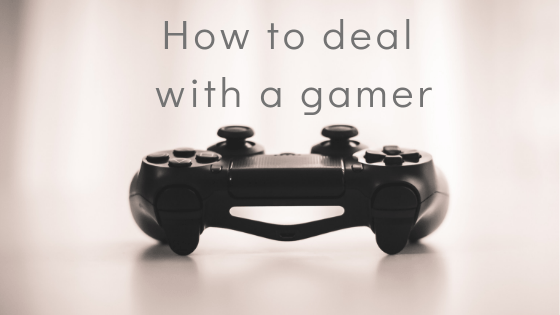Minecraft, Fortnight, Candy Crush, or Call of Duty. All of these video games are popular and they are here to stay. The evolution of handheld devices and smartphones make it possible for gaming to happen whenever the person wants to play. The online community of gaming and twitch have led people to become even more into these games. Why? They’re fun! They provide a source of entertainment and can help one feel connected to a community. However, it is difficult to be a parent, friend, or partner of someone who is gaming too much.
How your loved one’s gaming affects you
Signs your loved one is spending too much time gaming:
- Lost of interest in previously enjoyed activities
- Irritation or frustration when not able to access a video game (ex. battery dying on a phone or poor internet connection)
- Justifying excessive use
- Difficulty abstaining from video games for a period of time
- Extreme loss of time while gaming (ex. stating, “I had no idea I’ve been playing for 5 hours. It felt like 30 minutes)
- Poor physical health or weight gain
Usual reactions and feelings for the loved one:
- Feeling disrespected
- Frustrated
- Feeling unappreciated
- Ignored
- Taken for granted
 Request meaningful time away from the screen
Request meaningful time away from the screen
Try asking your loved one to spend some time together away from the screens or maybe even discuss times in the day where all screens are off. This limits the temptation for anyone to pull out a phone, tablet, or turn on the TV.
Loved ones choose to spend time together despite competing priorities, not in the absence of them.
We all have the same 24 hours in a day. People who report happiness and satisfaction in their relationships purposefully make time for one another. This helps grow the bond in the relationship and enhances the connection. Spend time together engaged in a hobby or shared activity that is away from the screens. This time allows natural conversation to flow about subject matter that does not pertain to gaming. It will provide the space and time to share fears, excitements, and hopes within the relationship.
When asking for meaningful time doesn’t work
- Don’t try to talk to the loved one while they are gaming. It won’t work. The loved one might keep their eyes on the game and remove their headset from one ear, but they are still paying attention to the game.
- Do not to join them in gaming. Partners will often seek to join the person in their video gaming as a way to connect somehow and make up for feeling neglected in the relationship. However, this can be silent permission to continue engaging in the problem behavior.
- Advocate and set boundaries using “I statements.” Approach your loved one with respect and desire for closeness. Refrain from blaming or saying things like, “you’re always on the game why don’t you spend time with me?” Try instead, “I feel neglected and frustrated when you choose to come home from work and start gaming. Can you please spend 30 minutes with me a night before you game?”

Seeking Help
You may try all these tips and it still doesn’t work. fF that’s the case, it is a sign that your loved one may have a serious problem with video gaming. Seek counseling for yourself and learn how to cope with your loved one’s problem gaming is important. You can even request and encourage your loved one to join you in counseling. Video game addiction can be dangerous. It has been linked to depression, lack of hygiene, insomnia, and substance abuse. A professional can help you navigate this difficult conversations.
Video gaming can cause conflict in lots of relationships. If you’re feeling disconnected from your partner, reach out. Contact us and set up an appointment with our couples counselor, Dillon. He helps couples reconnect and find that spark again.
More articles like this one:
7 Ways Mentally Strong People Handle Stress


